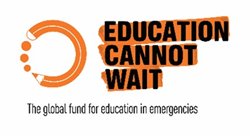Afghan farmer wants daughter to have same opportunities
As a girl growing up in Afghanistan, school was never a given for eight-year-old Skina*.
A lack of qualified female teachers and poor school infrastructure, together with community attitudes that that limit girls’ access to education, mean thousands of Afghan girls have never set foot in a classroom.
Things only got worse when the Taliban instituted a ban on girls going to secondary school and University last year. As a result, thousands of female students were forced to stop their studies overnight.

Skina’s* father wants her to have the same opportunities he had growing up.
Luckily for Skina*, a love of learning runs in her family. Her father, Ibrahim*, says, “I want my children to be educated, at least to be able to read and write properly.”
The farmer explains, “I attended primary school, and I can read and write. This has helped me a lot in my life, especially when I go out of my province. I can understand the road signs, read banners, and find any address.”
Safe space for girls to learn
When Save the Children discovered there wasn’t a school in Skina’s remote village, we established community-based education classes for primary school aged children. These classes aim to provide young girls with a safe and supportive learning environment.
“When I heard about community-based education centres run by Save the Children, I was happy and asked my daughter to attend,” Ibrahim* says.
Skina* is thrilled to be at school. “…The class takes place on the next road, and I can go on my own,” she says. “I attend class with my friends every day,” she adds. “I like math and drawing the most.”

Skina* loves attending class with her friends and has learnt to read and write in only a few months.
Save the Children has given Skina and her classmates school bags, books, and stationery to help them learn. We also employ female teachers to run classes, which helps overcome barriers that can make parents hesitant to send their daughters to school.
The lessons children receive not only develop their numeracy and literacy skills, but also offer a place of refuge, which is critical for students who have faced traumatic experiences such as war and displacement.
Skina has learnt a lot in just a few months and is catching up on the years she couldn’t go to school. “In the future, I want to be a doctor to help people,” she says, full of hope.

Skina* dreams of being a doctor.
Ibrahim is thrilled his daughter is following in his footsteps. “Since Skina has joined the learning centre, she has learned how to read and write very quickly,” he says proudly. “I am very happy with her improvements.”
This project, which is funded by Education Cannot Wait, has supported 38,182 Afghan students to go to school – 20,878 of them girls, just like Skina.

*Names changed for anonymity.
Photos: Atabek Khadim / Save the Children Afghanistan.